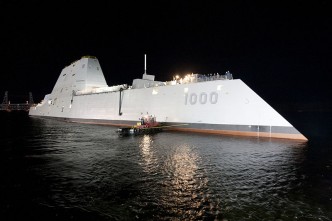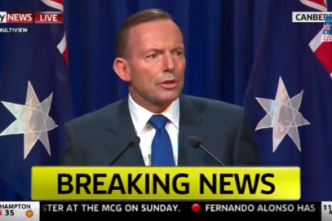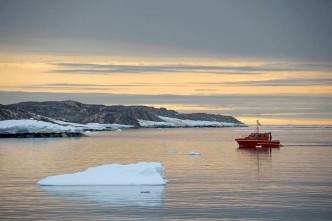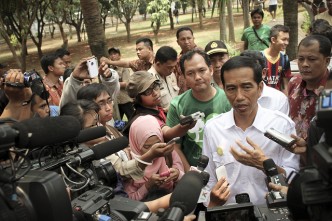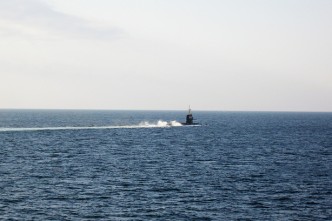To write of bureaucratic culture is to venture into fog and quicksand and risk returning with mud and mush. Yet in understanding a power town like Canberra, culture offers answers not delivered by legal tomes …
This week’s wrap kicks off with an in-depth profile of German Chancellor Angela Merkel from the New Yorker’s December edition. Pay attention to Merkel’s strategy for dealing with Vladimir Putin and her razor-sharp insights into …
Some analysts have recently observed that Australia isn’t complying with its International Energy Agency obligations—it’s the only member of the International Energy Agency (IEA) that doesn’t have a 90-day supply of strategic petroleum reserves. But …
It’s interesting to think about the Australia–Indonesia relationship in terms of game theory, as Peter Jennings, Peter McCawley and Rod Lyon have done in this blog recently. And I even got a few hundred words into …
Perhaps an old-fashioned diplomatic historian might add to the valuable comments by Peter Jennings, Peter McCawley and Greta Nabbs-Keller on how to handle the current tensions between Australia and Indonesia. In particular, we might usefully …
This week features the Prime Minister’s national security statement, the Countering Violent Extremism Summit in Washington, terror threats in the Asia–Pacific, sweeping CT legal reforms across the globe and the upcoming metadata retention bill. Following …
This week on The Beat, we discuss the implications of Abbott’s national security address, the Australian Crime Commission’s appearance at the House Standing Committee on Communications, unexplained wealth and metadata laws, the Australian Cyber Security …
There was a glaring omission in the Review of Australia’s Counter-Terrorism Machinery released this week: an absence of discussion about the implications of the changed threat environment for Australia’s response models and capabilities, either domestically …
Last week Lenovo grabbed headlines for all the wrong reasons following the discovery that the company had pre-loaded adware onto PC’s sold between September 2014 and January 2015. The ‘Superfish’ software monitors users’ online activity …
Peter Jennings and Peter McCawley have both produced thoughtful and insightful posts on why Australia and Indonesia seem to be trapped in a classic ‘prisoner’s dilemma’ game. In this post, I’d like to further unpack …
Surprise—national security agencies are now expected to face a threat growing in capability and intent and the government will reconsider whether they will do so with only slightly less money. The Prime Minister’s National Security …
This post is a contribution to a series leading to ASPI’s Future Surface Fleet Conference at the end of March. Early bird tickets are now available. The prospect of future conflict being conducted in contested, extremely …
This week’s update features Afghanistan, dishonesty in the US Army, Land 400, the PLA’s war-gaming technology, Houthi rebels, and women in combat. Over on Small Wars Journal, the ADF’s Lieutenant-Colonel Mark Smith released a paper …
https://www.youtube.com/watch?v=Iib89Zy_8rM Terrorists operating against Western targets claim their acts are inspired, and in many cases required, by Islam. But should our leaders be openly linking Islam and terrorism or is it better if they publicly deny …
This week’s update discusses American drone exports, the state of Russian and Indian fifth-generation fighters, new technology advancements and complications, and the upcoming 2015 Australian International Air Show. First, last Tuesday US President Barack Obama …
Two incidents so far this year have highlighted Australia’s inability to protect its sovereignty and discharge its responsibilities in Antarctica and the Southern Ocean. In the first incident in January, three foreign fishing vessels were …
Joko Widodo was elected on the policy platform of defending Indonesia’s political sovereignty and territorial integrity, with a good dose of economic nationalism thrown in. That policy platform now manifests itself in a range of …
It was another big week for submarines here in Australia. Early last week the Defence Minister’s office said that the competitive evaluation process for the Collins-class submarine replacement will involve two distinct stages—a request for …
In a town that’s already cluttered with reviews and white papers, do we really need another one? My answer, which I argue in a new paper released today (available here), is an unequivocal yes. As far …
Smoke clears. Agony and anguish ebb. The fallen depart. The integration of AusAID into the Department of Foreign Affairs and Trade—the greatest revolution in Australia’s foreign policy bureaucracy since 1987—is done, if not dusted. The …













